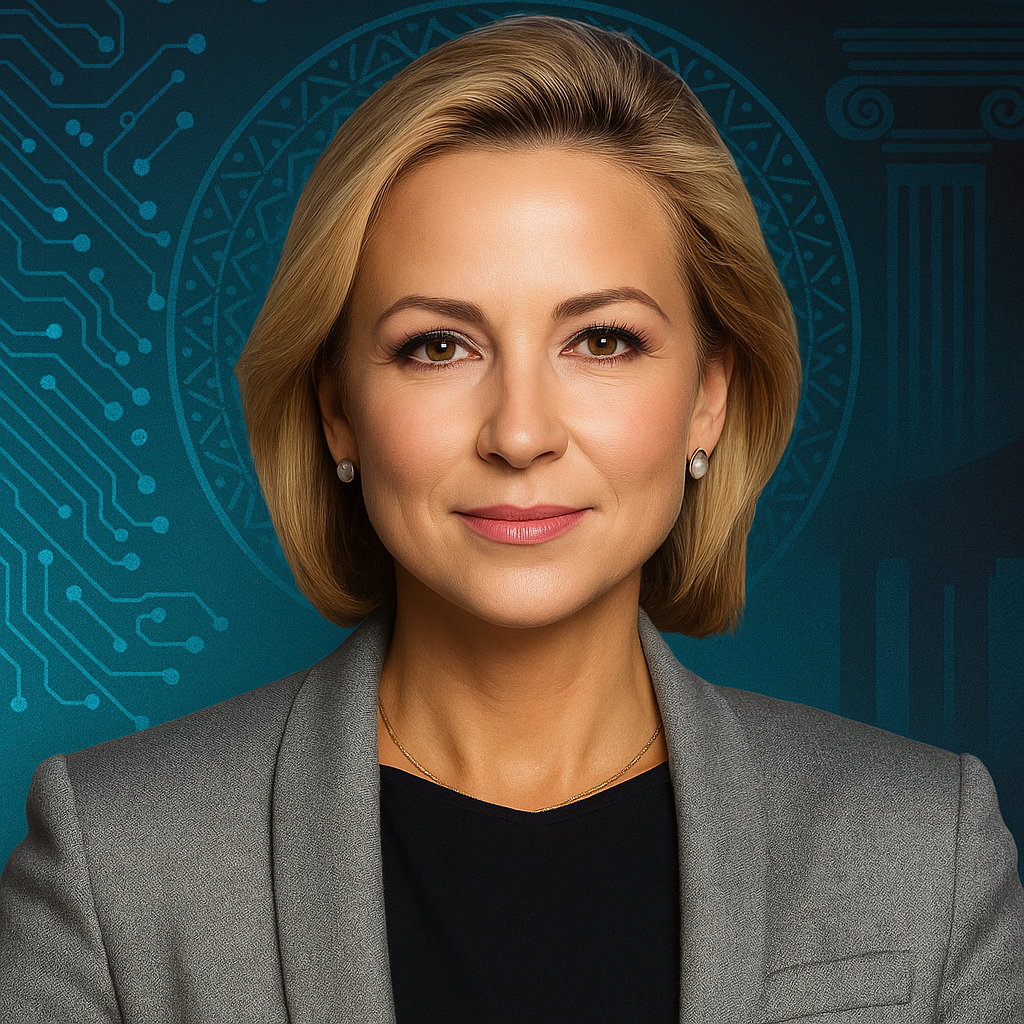
Techno-Cultural Diplomacy™

Article by Prof. Dr. Ingrid Vasiliu-Feltes
In the quantum era, Techno-Cultural Diplomacy™ unites technology and identity, ensuring that as innovation accelerates, humanity's cultural soul guides the future of sovereignty.
Introduction
Techno-Cultural Diplomacy™ in the quantum era emerges at a moment when nations are confronted with the simultaneous acceleration of frontier technologies and the urgent need to preserve cultural identity in a rapidly converging world. Quantum computing, artificial intelligence, sovereign cloud ecosystems, satellite communications, extended reality environments, and autonomous systems are reshaping how societies create, store, exchange, and reinterpret meaning. As these infrastructures evolve, cultural memory, linguistic heritage, artistic expression, and identity narratives face profound transformation. The question is not whether technology will shape culture, but how cultural sovereignty will guide technological development.
Impact
Technological sovereignty now defines a nation's strategic capacity to control its digital infrastructure, data governance, innovation pipelines, and computational architectures. However, sovereignty in this era cannot be reduced to technical systems alone. It includes the safeguarding of collective identity, ancestral knowledge systems, cultural symbolism, and the dignity of communities shaped across generations. The quantum era forces a deeper recognition that technological autonomy and cultural continuity are inseparable dimensions of national resilience.
Global investments reflect this shift. Nations are developing quantum-secure communication networks, sovereign HPC and cloud systems, next-generation semiconductor fabrication, and national AI research institutes. These investments are often presented as purely economic or security priorities. However, they fundamentally determine how knowledge is preserved, how languages survive in digital contexts, how art and history are archived or reinterpreted, and how cultural values are encoded into algorithms. Without cultural considerations, technological sovereignty risks becoming merely computational sovereignty.
Economic models and global trade systems are shifting accordingly. Trade agreements now incorporate digital sovereignty, data localization, algorithmic transparency, and intellectual property protections. Tariff and non-tariff measures increasingly apply to semiconductor supply chains, rare earth elements, encryption hardware, and satellite infrastructure. The movement of digital assets has begun to rival the movement of physical goods. Yet cultural assets—traditional arts, literature, architecture, craftsmanship, rituals, and indigenous knowledge—remain vulnerable to dilution or commodification within global digital exchange networks.
Heritage preservation faces new and complex pressures. Languages may disappear if not represented in digital speech systems, archives may be lost if not encoded in post-quantum durable formats, and artistic heritage risks reinterpretation by generative systems disconnected from cultural context. Cultural preservation is therefore not nostalgia, but strategy. In the quantum era, cultural continuity is a sovereign infrastructure—one that protects the nation's identity and dignity across time.
A New Framework: Techno-Cultural Diplomacy™
Opportunities arise when nations link technological design with cultural identity. Techno-Cultural Diplomacy™ provides a framework that can ensure technological progress strengthens rather than erodes identity. It promotes cross-cultural research, heritage-led digital innovation, and the integration of cultural institutions—museums, universities, language academies, artistic guilds—into national innovation ecosystems. This approach supports Deep-Tech-powered Nation Branding, where identity is not merely displayed externally, but is authentically rooted in cultural memory and projected with confidence into the future. Nation Branding in this context becomes an affirmation of continuity, resilience, and self-definition.
The evolution of governance in the quantum era must therefore include cultural intelligence as a core competency. Multilateral cooperation requires not only regulatory alignment and scientific exchange but also shared respect for cultural diversity and sovereignty over identity. Ethical frameworks for AI, quantum networks, and extended reality systems must include guidelines for cultural representation, linguistic preservation, and equitable access to cultural expression. Preventing digital homogeneity is equally important as avoiding technological dependency.
Future Directions
Looking forward, future global cooperation will depend on diplomatic architectures that treat culture as a strategic foundation of sovereignty. It is in this spirit that Diplomatic World has introduced a new initiative to advance Techno-Cultural Diplomacy™ and Deep-Tech-Powered Nation Branding™ as platforms to support nations in preserving cultural heritage, linguistic diversity, artistic identity, and historical continuity while pursuing technological autonomy and innovation-driven prosperity. The initiative aligns closely with the priorities of the United Nations and UNESCO in safeguarding intangible heritage and cultural rights; the G20 and G7's focus on resilient and inclusive digital transformation; the European Union's strategic autonomy and digital sovereignty agenda; and the World Economic Forum's emphasis on human-centered technological governance. By integrating global cultural stewardship with sovereign innovation strategies, the initiative contributes to a cooperative framework that protects and celebrates cultural diversity, even as societies transition into quantum-accelerated futures. Diplomatic World will continue to serve as a global platform for advancing this dialogue among technology, culture, and sovereignty.
